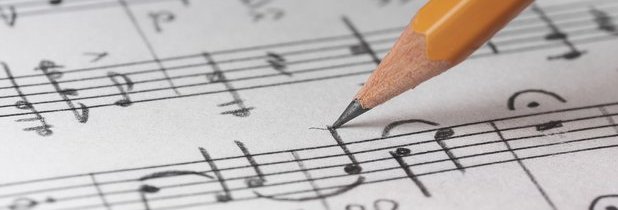Music theory can be best expressed as the language of music. It makes your understanding of music structure more solid; it gives you a different concept of how you hear and play music. Music theory takes the similitude of any other language, you must know how to speak and write it fluently before you can be considered a ‘master’ of that language. The knowledge of music theory will not only make you an outstanding musician, but will enable you read, write and understand music perfectly.
Learning Music Theory Increases Your Ability To Understand Music
Studying music theory is a rudimentary component of music anatomy. It’s not as difficult, boring and archaic as most musicians think it to be, its actually fun to learn because it makes you more aware of your instrument and general understanding of music. It’s an asset you must strive to acquire as a musician. Unlike what most people believe, music theory will enhance your creativity rather than impede it or slow it down. Although there are many rules to learn in music theory, these rules are only there to broaden your knowledge.
Learning Music Theory Helps You Know How To Transcribe Music
When you have a good knowledge of elementary music theory, it becomes real easy to compose and transcribe musical pieces. Music theory helps you add up the link between sounds and written notes; it helps you work both ways which is, taking notes from sheet music and making it a real-life sound, and taking a real-life sound and turning it into sheet music. If you’re an aspiring songwriter or singer, knowing how to transcribe music is paramount.
Music Theory Helps You Develop A Comprehensive View Of Music
Learning music theory helps you understand that every department of music is interconnected/fused together. Music is one body with many branches, learning its theory will help you realize that every different aspect of music is equally as important as your own area of specialization, it just gives you a holistic unbiased view of music and whatever knowledge of music theory you have, it can be applied to every area no matter what you play – guitar, drums, violin, piano etc.
It Can Help You Improvise More Freely
Learning music theory gives you a knack when it comes to improvisation; it just automatically lets you know what would work and what would not, it fits the puzzles together in your head. Many musicians have a particular complaint about improvisation – “I always don’t know what to do”. Knowing music theory takes you away from that ‘circle of friends’, it eliminates the confusion that comes with improvisation and gives you an ‘on-the-spot’ top-notch performance.
Music Theory Helps You Play More Accurately
The common error of missing notes, skipping beats and timing is reduced to a minimum by learning music theory. You can play anywhere and with any band without having to rehearse or practice with them prior to the performance. Music theory would help you know the exact and accurate way a music composer intended a particular piece of music to sound or be played just by looking at it. Music theory simply put here, makes you an ‘impromptu pro’!
Music Theory Helps You Sight Read
Studying music theory helps you build and develop your skill of merging tones and written notes with just one look. It’s true that your sight reading skill sharpens when you constantly practice it, but learning music theory will help to further advance this skill, it speeds up the process of learning for you, compared to someone who just learned how to sight read by playing music alone. It will help you understand sight reading by knowing chord arrangements and knowing what the next piece on the note is going to sound like.
Music theory is broad and interesting to learn, it’s not as limited as people think it is. It makes your performance ever new, exciting and inventive, it increases the speed of your musical creativity, deepens your senses and ears for notes, broadens your knowledge of musical pieces and other composers and puts your listening skills far above the reach of the ‘average’ musician. Start learning music theory today, it’s not too late.







9 comments
Wow, awesome blog layout! How long have you been blogging for? Beverlee Hayward Anderegg
Hello Beverlee, thank you!
Not too long.
You can definitely see your enthusiasm within the work you write. Ardine Earvin Lev
Thank you Ardine!
You make things so clear. Thanks for taking the time! Misti Trev Kowal
You’re welcome!
I love that you mentioned that learning music theory is highly beneficial for musicians because it allows them to read music and learn a new piece without needing rehearsals. I’m a self-taught pianist, so this is an excellent read to me. I want to be better at playing the piano since I want to do this professionally in the future, so I’ll follow your advice and learn music theory.
Music theory will definitely make you better, musicians that know music theory are clearly distinguished from those who do not. Best of luck, Levi!